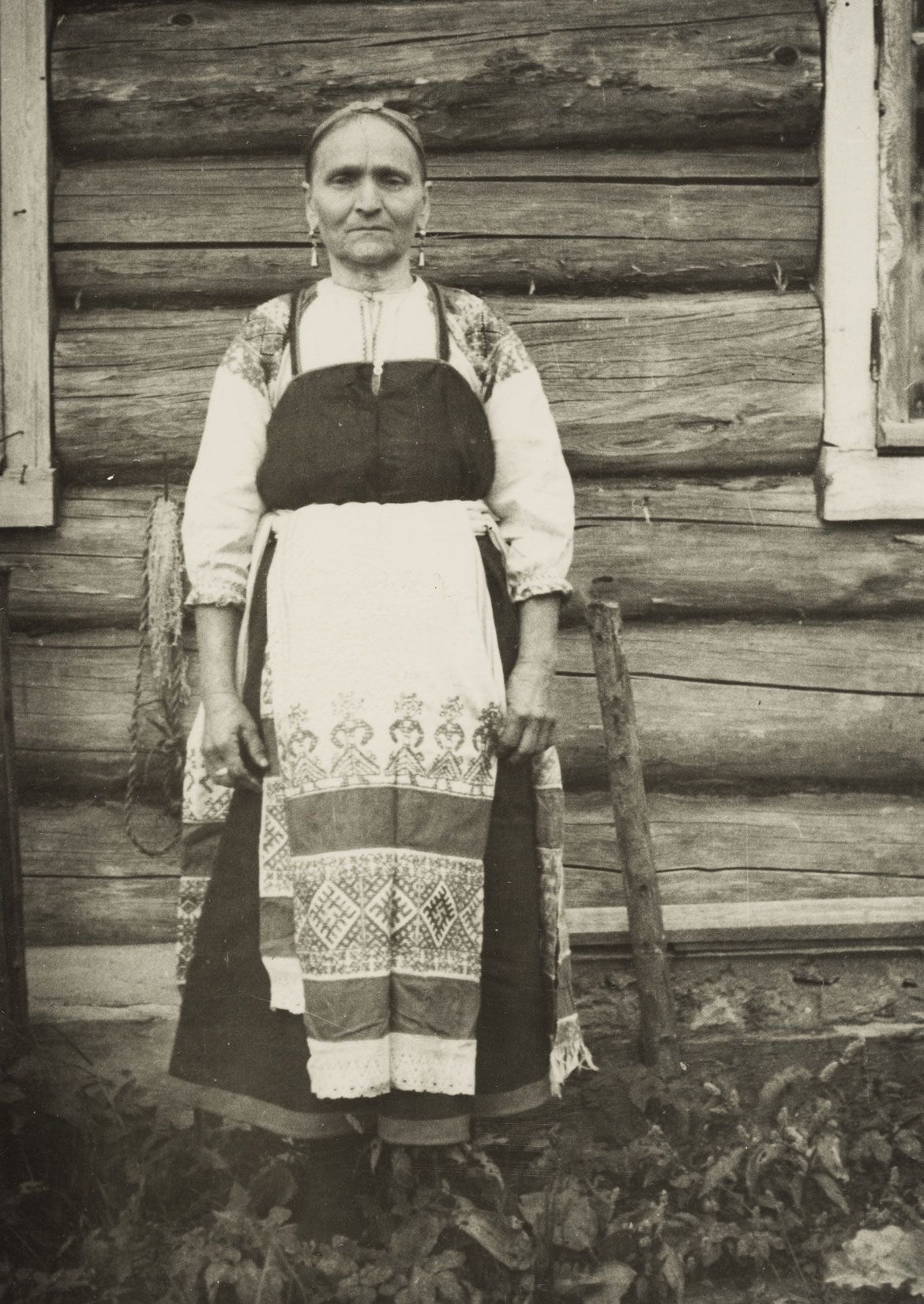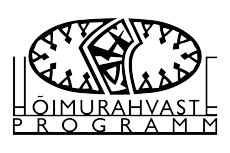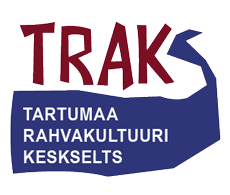Maťo (Matryona) Gerasimova
Maťo (Matryona) Gerasimova (born in 1883) was a native of the Jõgõperä (Krakolye) village. She was Darya Lehti’s niece and the sister of Votian linguist Dmitri Tsvetkov. Paul Ariste met Maťo in the summer of 1947 in the Kukkuzi village, to where she had moved from Jõgõperä. Maťo spoke good Votian, remembered songs and was always willing to recite them. Some of Maťo’s songs were in good Votian language, but some contained Ingrian influences or were altogether sung in a mix of Votian and Ingrian languages. Within just a couple of days, Paul Ariste wrote down more than 1,000 lines of Votian folk songs from her. Ten years later, Maťo could recall only a few lines. Ariste regretted that he could not write down the melodies, and so the melodies of Maťo’s songs are now lost forever.
Maťo Gerasimova was a well-known lead and choir singer. She had learned her songs from her mother in the Jõgõperä village. Jõgõperä (Krakolye) was a bilingual Votian-Ingrian village, where the two ethnic groups learned each other’s songs. This resulted in what were regarded as common Votian-Ingrian songs, which were simply sung in different dialects. At weddings, the singers used their mother tongue—often some wedding singers sang in Votian and others in Ingrian. People also sang on Sundays and during feast days. When Maťo was young, singing in Votian was not considered shameful, but later people only sang Russian songs. Maťo referred to Votian and Ingrian songs as Finnish songs—soomõõ virred, as opposed to Russian songs or venäi virred. Votians also had bawdy songs, or lopizõmizõ virred, that decent people refused to sing, and Maťo claimed she did not know any. She preferred not to sing laments, claiming that an old woman’s life is sad as it is and laments made her cry. As to the melodies, Maťo said that virred õlivad enäpii ühtä noottia (’the songs were mostly sung with the same melody’).
Maťo had a lively personality and a sharp mind. When she spoke about Votian weddings and feasts, her eyes sparkled with youthful animation. For her, folk songs were not a part of some former forgotten world but a living present existence. Next to Anna Ivanovna, Maťo Gerasimova was the greatest Votian singer and a source of versatile repertoire. She was the last true Votian singer.
Ariste 1960, 2005; Bartens 2012; Ernits 2009; Heinsoo 2005.
Songs:

Votian singer Maťo Gerasimova wearing archaic Votian clothing in the Jõgõperä (Krakolye) village. Photo: E. Laid (ERM Fk 1009:381).





